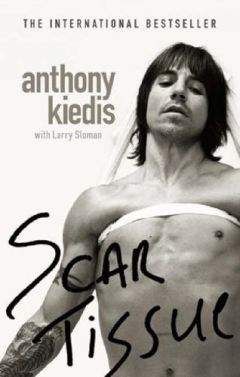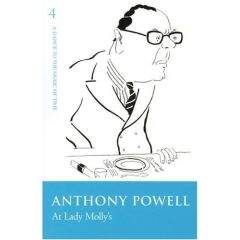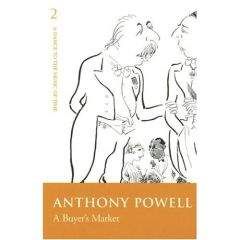Anthony Trollope - Autobiography of Anthony Trollope
thoroughly English. There was a little fox-hunting and a little
tuft-hunting, some Christian virtue and some Christian cant. There
was no heroism and no villainy. There was much Church, but more
love-making. And it was downright honest love,--in which there was
no pretence on the part of the lady that she was too ethereal to
be fond of a man, no half-and-half inclination on the part of the
man to pay a certain price and no more for a pretty toy. Each of
them longed for the other, and they were not ashamed to say so.
Consequently they in England who were living, or had lived, the
same sort of life, liked Framley Parsonage. I think myself that
Lucy Robarts is perhaps the most natural English girl that I ever
drew,--the most natural, at any rate, of those who have been good
girls. She was not as dear to me as Kate Woodward in The Three
Clerks, but I think she is more like real human life. Indeed
I doubt whether such a character could be made more lifelike than
Lucy Robarts.
And I will say also that in this novel there is no very weak part,--no
long succession of dull pages. The production of novels in serial
form forces upon the author the conviction that he should not allow
himself to be tedious in any single part. I hope no reader will
misunderstand me. In spite of that conviction, the writer of stories
in parts will often be tedious. That I have been so myself is a
fault that will lie heavy on my tombstone. But the writer when he
embarks in such a business should feel that he cannot afford to have
many pages skipped out of the few which are to meet the reader's
eye at the same time. Who can imagine the first half of the first
volume of Waverley coming out in shilling numbers? I had realised
this when I was writing Framley Parsonage; and working on the
conviction which had thus come home to me, I fell into no bathos
of dulness.
I subsequently came across a piece of criticism which was written
on me as a novelist by a brother novelist very much greater than
myself, and whose brilliant intellect and warm imagination led him
to a kind of work the very opposite of mine. This was Nathaniel
Hawthorne, the American, whom I did not then know, but whose works
I knew. Though it praises myself highly, I will insert it here,
because it certainly is true in its nature: "It is odd enough," he
says, "that my own individual taste is for quite another class of
works than those which I myself am able to write. If I were to meet
with such books as mine by another writer, I don't believe I should
be able to get through them. Have you ever read the novels of Anthony
Trollope? They precisely suit my taste,--solid and substantial,
written on the strength of beef and through the inspiration of
ale, and just as real as if some giant had hewn a great lump out of
the earth and put it under a glass case, with all its inhabitants
going about their daily business, and not suspecting that they
were being made a show of. And these books are just as English as
a beef-steak. Have they ever been tried in America? It needs an
English residence to make them thoroughly comprehensible; but still
I should think that human nature would give them success anywhere."
This was dated early in 1860, and could have had no reference to
Framley Parsonage; but it was as true of that work as of any that
I have written. And the criticism, whether just or unjust, describes
with wonderful accuracy the purport that I have ever had in view
in my writing. I have always desired to "hew out some lump of the
earth," and to make men and women walk upon it just as they do walk
here among us,--with not more of excellence, nor with exaggerated
baseness,--so that my readers might recognise human beings like to
themselves, and not feel themselves to be carried away among gods
or demons. If I could do this, then I thought I might succeed
in impregnating the mind of the novel-reader with a feeling that
honesty is the best policy; that truth prevails while falsehood
fails; that a girl will be loved as she is pure; and sweet, and
unselfish; that a man will be honoured as he is true, and honest,
and brave of heart; that things meanly done are ugly and odious,
and things nobly done beautiful and gracious. I do not say that
lessons such as these may not be more grandly taught by higher
flights than mine. Such lessons come to us from our greatest poets.
But there are so many who will read novels and understand them, who
either do not read the works of our great poets, or reading them
miss the lesson! And even in prose fiction the character whom
the fervid imagination of the writer has lifted somewhat into the
clouds, will hardly give so plain an example to the hasty normal
reader as the humbler personage whom that reader unconsciously feels
to resemble himself or herself. I do think that a girl would more
probably dress her own mind after Lucy Robarts than after Flora
Macdonald.
There are many who would laugh at the idea of a novelist teaching
either virtue or nobility,--those, for instance, who regard
the reading of novels as a sin, and those also who think it to be
simply an idle pastime. They look upon the tellers of stories as
among the tribe of those who pander to the wicked pleasures of a
wicked world. I have regarded my art from so different a point of
view that I have ever thought of myself as a preacher of sermons,
and my pulpit as one which I could make both salutary and agreeable
to my audience. I do believe that no girl has risen from the reading
of my pages less modest than she was before, and that some may have
learned from them that modesty is a charm well worth preserving. I
think that no youth has been taught that in falseness and flashness
is to be found the road to manliness; but some may perhaps have
learned from me that it is to be found in truth and a high but
gentle spirit. Such are the lessons I have striven to teach; and
I have thought it might best be done by representing to my readers
characters like themselves,--or to which they might liken themselves.
Framley Parsonage--or, rather, my connection with the Cornhill--was
the means of introducing me very quickly to that literary world
from which I had hitherto been severed by the fact of my residence
in Ireland. In December, 1859, while I was still very hard at work
on my novel, I came over to take charge of the Eastern District,
and settled myself at a residence about twelve miles from London,
in Hertfordshire, but on the borders both of Essex and Middlesex,--which
was somewhat too grandly called Waltham House. This I took on
lease, and subsequently bought after I had spent about (pounds)1000 on
improvements. From hence I was able to make myself frequent both
in Cornhill and Piccadilly, and to live, when the opportunity came,
among men of my own pursuit.
It was in January, 1860, that Mr. George Smith--to whose enterprise
we owe not only the Cornhill Magazine but the Pall Mall Gazette--gave
a sumptuous dinner to his contributors. It was a memorable banquet
in many ways, but chiefly so to me because on that occasion I first
met many men who afterwards became my most intimate associates.
It can rarely happen that one such occasion can be the first
starting-point of so many friendships. It was at that table, and
on that day, that I first saw Thackeray, Charles Taylor (Sir)--than
whom in latter life I have loved no man better,--Robert Bell, G. H.
Lewes, and John Everett Millais. With all these men I afterwards
lived on affectionate terms;--but I will here speak specially of
the last, because from that time he was joined with me in so much
of the work that I did.
Mr. Millais was engaged to illustrate Framley Parsonage, but this
was not the first work he did for the magazine. In the second number
there is a picture of his accompanying Monckton Milne's Unspoken
Dialogue. The first drawing he did for Framley Parsonage did not
appear till after the dinner of which I have spoken, and I do not
think that I knew at the time that he was engaged on my novel. When
I did know it, it made me very proud. He afterwards illustrated
Orley Farm, The Small House of Allington, Rachel Ray, and Phineas
Finn. Altogether he drew from my tales eighty-seven drawings, and
I do not think that more conscientious work was ever done by man.
Writers of novels know well--and so ought readers of novels to
have learned--that there are two modes of illustrating, either of
which may be adopted equally by a bad and by a good artist. To
which class Mr. Millais belongs I need not say; but, as a good
artist, it was open to him simply to make a pretty picture, or to
study the work of the author from whose writing he was bound to take
his subject. I have too often found that the former alternative
has been thought to be the better, as it certainly is the easier
method. An artist will frequently dislike to subordinate his ideas
to those of an author, and will sometimes be too idle to find out
what those ideas are. But this artist was neither proud nor idle.
In every figure that he drew it was his object to promote the
views of the writer whose work he had undertaken to illustrate, and
he never spared himself any pains in studying that work, so as to
enable him to do so. I have carried on some of those characters from
book to book, and have had my own early ideas impressed indelibly
on my memory by the excellence of his delineations. Those illustrations
were commenced fifteen years ago, and from that time up to this
day my affection for the man of whom I am speaking has increased.
To see him has always been a pleasure. His voice has been a sweet
sound in my ears. Behind his back I have never heard him praised
without joining the eulogist; I have never heard a word spoken
against him without opposing the censurer. These words, should he
ever see them, will come to him from the grave, and will tell him
of my regard,--as one living man never tells another.
Sir Charles Taylor, who carried me home in his brougham that
evening, and thus commenced an intimacy which has since been very
close, was born to wealth, and was therefore not compelled by the
necessities of a profession to enter the lists as an author. But
he lived much with those who did so,--and could have done it himself
had want or ambition stirred him. He was our king at the Garrick




